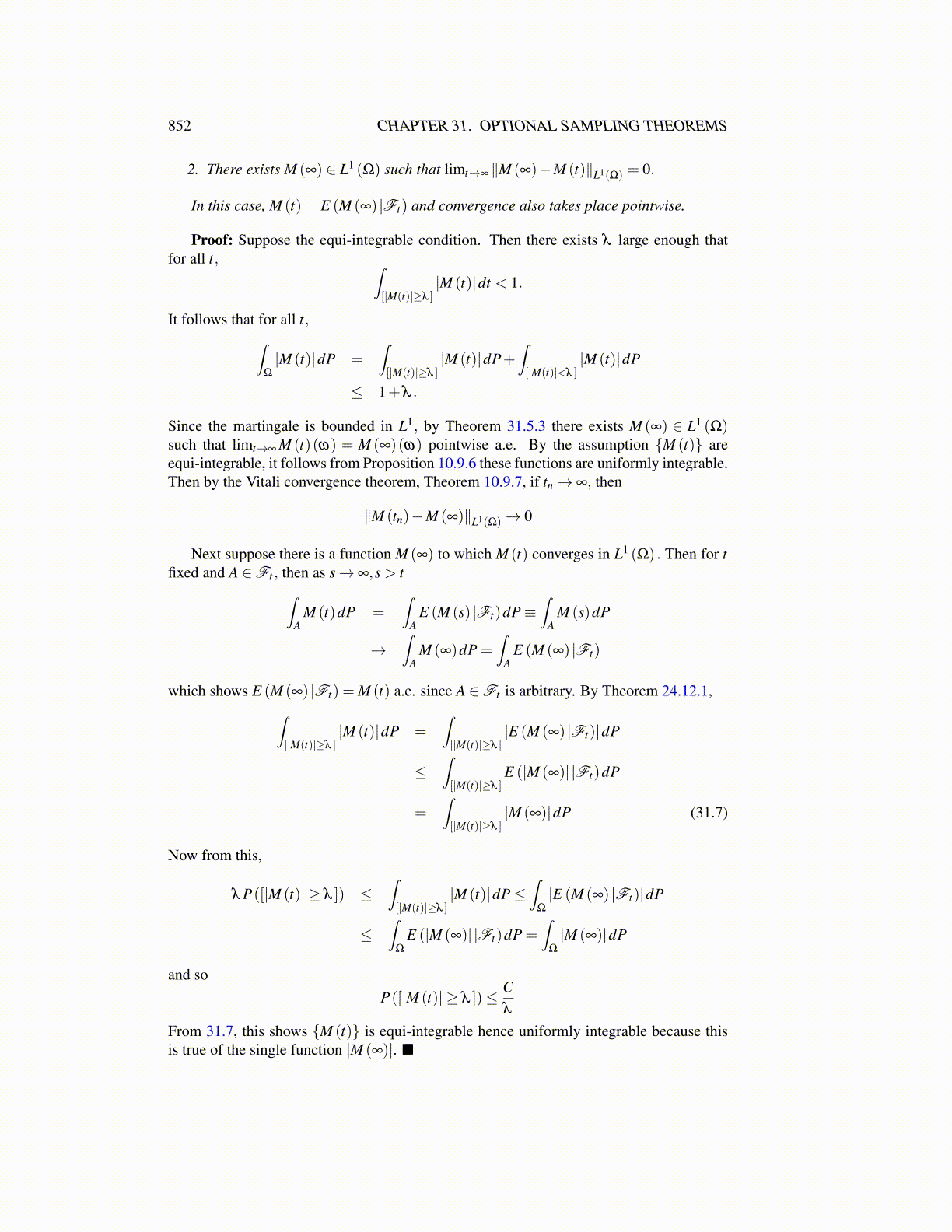
852 CHAPTER 31. OPTIONAL SAMPLING THEOREMS
2. There exists M (∞) ∈ L1 (Ω) such that limt→∞ ∥M (∞)−M (t)∥L1(Ω) = 0.
In this case, M (t) = E (M (∞) |Ft) and convergence also takes place pointwise.
Proof: Suppose the equi-integrable condition. Then there exists λ large enough thatfor all t, ∫
[|M(t)|≥λ ]|M (t)|dt < 1.
It follows that for all t,∫Ω
|M (t)|dP =∫[|M(t)|≥λ ]
|M (t)|dP+∫[|M(t)|<λ ]
|M (t)|dP
≤ 1+λ .
Since the martingale is bounded in L1, by Theorem 31.5.3 there exists M (∞) ∈ L1 (Ω)such that limt→∞ M (t)(ω) = M (∞)(ω) pointwise a.e. By the assumption {M (t)} areequi-integrable, it follows from Proposition 10.9.6 these functions are uniformly integrable.Then by the Vitali convergence theorem, Theorem 10.9.7, if tn→ ∞, then
∥M (tn)−M (∞)∥L1(Ω)→ 0
Next suppose there is a function M (∞) to which M (t) converges in L1 (Ω) . Then for tfixed and A ∈Ft , then as s→ ∞,s > t∫
AM (t)dP =
∫A
E (M (s) |Ft)dP≡∫
AM (s)dP
→∫
AM (∞)dP =
∫A
E (M (∞) |Ft)
which shows E (M (∞) |Ft) = M (t) a.e. since A ∈Ft is arbitrary. By Theorem 24.12.1,∫[|M(t)|≥λ ]
|M (t)|dP =∫[|M(t)|≥λ ]
|E (M (∞) |Ft)|dP
≤∫[|M(t)|≥λ ]
E (|M (∞)| |Ft)dP
=∫[|M(t)|≥λ ]
|M (∞)|dP (31.7)
Now from this,
λP([|M (t)| ≥ λ ]) ≤∫[|M(t)|≥λ ]
|M (t)|dP≤∫
Ω
|E (M (∞) |Ft)|dP
≤∫
Ω
E (|M (∞)| |Ft)dP =∫
Ω
|M (∞)|dP
and soP([|M (t)| ≥ λ ])≤ C
λ
From 31.7, this shows {M (t)} is equi-integrable hence uniformly integrable because thisis true of the single function |M (∞)|. ■